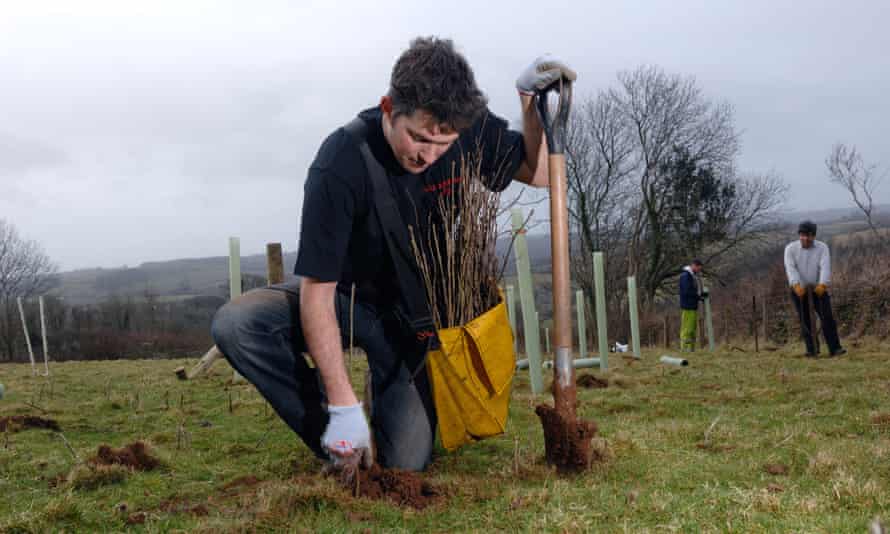Climate crisis: what can I do from the UK to help save the planet?
From joining local groups to pushing for change on a larger scale, there are ways for individuals in the UK to make an impact

It can feel a little futile to be rinsing plates and fiddling with metal straws while the world literally burns. Most of us are everyday citizens, rather than global decision-makers, and making small changes while governments continue to invest in fossil fuels and delay making policy changes that would reduce emissions can feel … not enough.
However, there are plenty of impactful things individuals can do to help tackle the crisis.
Write to your MP
This seems obvious, and sometimes futile depending on which constituency you are in, but MPs really do read their postbag and if they are inundated on a certain issue, they usually do something to assuage the concerns of their constituents.
There are some great template letters online from various campaign groups, or you could simply write to support local green schemes such as Low Traffic Neighbourhoods or find national policies or votes you wish them to support in parliament.
Here is a good template from the Soil Association, and another from Hope for The Future.
It’s always good to add a personal touch so the MP isn’t drowned with hundreds of identical letters. Get your neighbours to write, as well.
Community greening
While turning local verges into wildflower patches or digging one pond seems like a tiny effort in the grand scheme of things, every space for nature counts. Work with neighbours to make sure there are pollinator-friendly plants in your area, and lobby the council to mow verges less.
Some people have managed to club together to purchase little patches of land in their local authority, to grow orchards or dig ponds.
The Orchard Project is doing great work in urban areas, bringing back trees which are crucial for nature and wellbeing. The Million Ponds Project is another good place to start – they may be able to help you bring a pond to your community.
Ponds bring so much wildlife to a local area, I personally love going to see the bats diving to drink from my local pond at dusk.
Ask your boss
Some of us have more amenable bosses than others, but a huge amount of energy and resources is wasted in most offices.
The World Wildlife Foundation recommends lobbying your office to switch to a renewable energy firm for heating and electricity.
It is also a good idea to check who suppliers for the workplace are. Ethical Consumer Magazine rates companies on their “ethiscore” – an assessment of policies and actions towards people, politics, the environment and animals, looking at issues such as workers’ rights, fossil fuel investment and pollution. If businesses lose contracts because of their attitude to the climate crisis, they may start to rethink.
Some companies have switched to only vegetarian options in the canteen or at events, and others have tried to reduce packaging as much as possible.
The pandemic has helped many office spaces switch to a more flexible working culture – travelling to work often creates emissions so working from home a few days a week if the distance isn’t walkable or bikeable could make a difference. It may encourage colleagues to follow suit.
And how many of us have questioned employers about where our pensions are invested? Many pensions and other investments are supporting harmful industries such as fossil fuels and deforestation. Ask your pension provider or HR department where your money is going, and if it is supporting these industries, see if that can be changed.
Join local groups
Supporting your local green charities is a good place to start. Many areas have Plastic Free groups as well as nature organisations. The Wildlife Trusts have local branches all over the country and often look for volunteers to help preserve the important natural spaces they run, and advocates in the community to stop development next to these areas and help the wildlife.
Greenpeace and Friends of the Earth also run local volunteer groups.
… Or start one!
Nothing is stopping you from starting a local community action. It was a small group of locals in Ilkley, Yorkshire who managed to convince the government to designate their local river as bathing water in 2020, thus helping reduce sewage pollution.
Micro-groups across the country have planted pollinator-friendly plants in their communities and convinced local shops to switch to environmentally friendly materials and practices. They have picked up litter at weekly litter picks and lobbied the council and supermarkets to reduce waste. Small groups can make a real difference.
Donate and raise funds
There are countless organisations making a difference for the planet, from nature groups restoring lost animals to our countryside, to urban projects aiming to cool down our cities by planting more trees. Why not join some like-minded neighbours and friends together to raise money for these causes? Or set up a small direct debit every month, so you know you’ve put your money where your mouth is.
What are some other useful ways to contribute? Give us your thoughts in the comments below.